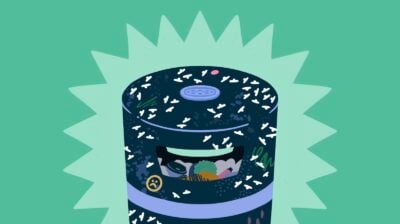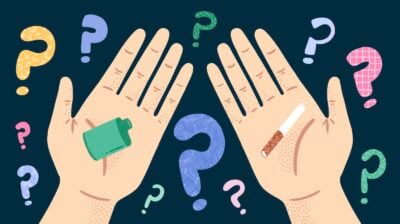Smoking
- Smoking
- Factsheet
What are nicotine pouches (snus)?
Written by: spunout
Nicotine pouches are a smokeless nicotine product that are placed inside the mouth, between the lip and gum or cheek
- Smoking
- Factsheet
Vaping demystified in a non-judgmental way
Written by: spunout
spunout has created a series of factual, non-judgmental resources about vaping and its effects so you can make informed decisions about your health
- Smoking
- Factsheet
How to reduce how much you vape
Written by: spunout
If you vape and want to stop, but don’t feel like you can to quit right now, you may have a desire to reduce how much you vape
- Smoking
- Factsheet
How are vapes marketed to young people?
Written by: spunout
Vaping companies have been criticised by governments, health organisations and other regulatory bodies around the world for the techniques they use...
- Smoking
- Factsheet
Vaping and the environment
Written by: spunout
Vaping products, in particular disposable vapes, can have a number of environmental impacts, especially when thrown away
- Smoking
- Factsheet
How to recycle disposable vapes
Written by: spunout
Often, people are not aware of the risks disposable vapes pose to the environment or the amount of precious, rare materials they contain
- Smoking
- Factsheet
How to quit vaping
Written by: spunout
Changing habits is difficult at the best of times, let alone when you are trying to stop using an addictive substance
- Smoking
- Factsheet
Vaping vs smoking: comparing the health effects
Written by: spunout
If you vape, you may be curious about the differences between vaping and smoking and their associated risks
- Smoking
- Factsheet
Smoking and COVID-19: What are the risks?
Written by: spunout
Smoking and vaping can increase your risk on getting COVID-19








